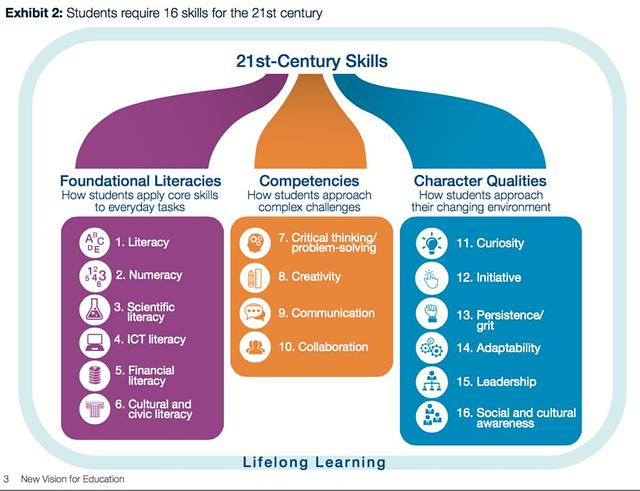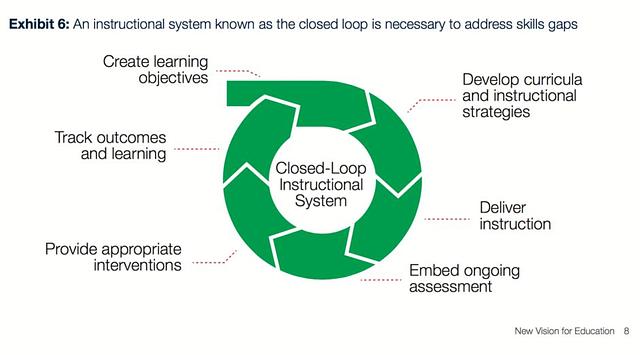วิสัยทัศน์ใหม่ด้านการศึกษา
เอกสาร New Vision for Education สังเคราะห์ผลงานวิจัยจากทั่วโลก และระบุทักษะที่ต้องการ ในศตวรรษที่ ๒๑ ไว้ ๓ กลุ่ม รวม ๑๖ ประการ ดังนี้
เขาเสนอ Closed-Loop Instructional System สำหรับสร้างทักษะที่ต้องการเหล่านี้
ซึ่งผมเห็นว่าวงการนโยบายศึกษาไทยน่าจะเข้าไปศึกษาเอกสารนี้ สำหรับนำมาปรับใช้ปฏิรูประบบ การเรียนรู้ (instructional system) ของเรา ซึ่งจะเห็นว่า เราไม่ได้ใช้หลักการนี้เลย เราใช้แนวคิดแบบเส้นตรง ไม่ใช่วงจร และเราเน้นการประเมินเพื่อตัดสิน ไม่ใช่การประเมินเพื่อพัฒนา อย่างที่เสนอในรายงานนี้
วิจารณ์ พานิช
๒๓ ต.ค. ๕๙
ความเห็น (1)
May I add emphasis on this "...เราเน้นการประเมินเพื่อตัดสิน ไม่ใช่การประเมินเพื่อพัฒนา..."?
Many processes in Thailand lack people with concept of recurring dynamics (in programming languages "repeat ... while... until..."). Though the stages in most processes are (very much what we Buddhists have learned at school - the 4 ariya saccas อริยสัจจะ ๔) identify (what is) the dukkha or problem; assess cause and factors (of the dukkha/problem); choose a solution (from prossible options); and 'action'. The process in action must be assessed/monitored/reviewed thru the same 4 stages and 'action' modified to fit dynamics of the dukkha/problem.
Common ways of fixing things in Thailand come with the word "reform" (throw away the old thing and implement another experimental solution). There is no thought of recurring dynamics!

